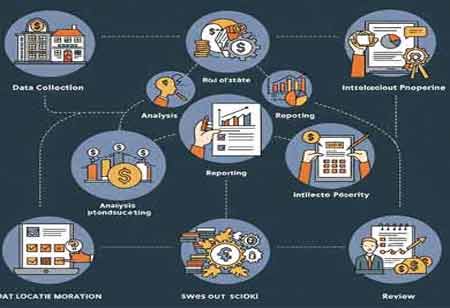CLOSE
Specials
- RegTech Europe
- Financial Risk Management APAC
- Investment Banking APAC
- Corporate Advisory APAC
- Regtech APAC
- Escrow Services
- Digital Banking Latam
- Trading Solutions APAC
- Treasury Management Europe
- CPA Firms Canada
- Financial Risk Management Europe
- Mortgage Broker
- Financial Licensing Europe
- RIA Advisory Europe
- FinTech Canada
- Financial Asset Management APAC
- Investment Banking Canada
- Payment Solution
- Lending Mangment Latam
- Payment Solution Europe
- Broker Dealer Firms Canada
- Alternative Investments Canada
- Financial Fraud
- Investment Management Latam
- Financial Health Europe
- Lending mangment
- Financial Marketing
- Proprietary Trading Europe
- Wealth Management
- FinTech
- Financial Brokerage Firm APAC
- Investment Advisory Europe
- Investment Advisory APAC
- Wealth Management MENA
- Claim Adjusting
- Claim Adjusting APAC
- Mergers and Acquisitions Consulting APAC
- Equipment Financing
- CPA Firms
- Mergers and Acquisitions Consulting Canada
- Investment Services
- Valuation Services Canada
- Wealth Management APAC
- Broker Dealer Firms
- Debt Collection Agencies
- Mergers and Acquisitions Consulting
- FinTech Europe
- Fintech Latam
- Financial Planning / Retirement
- Investment Management
- Financial Compliance
- Digital Banking Europe
- CFO Services
- Debt Collection Agencies Europe
- Wealth Management Europe
- Mergers and Acquisitions Consulting Europe
- Financial Restructuring Europe
- Financial Portfolio Management Canada
- Business Loan
- Payment and Card Latam
- Wealth Management Latam
- Mergers and Acquisitions Consulting Latam
- Tax Advisory Canada
- Trading Solutions Europe
- Alternative Investments
- Digital Insurance Europe
- Investment Services Latam
Weekly Brief
×Be first to read the latest tech news, Industry Leader's Insights, and CIO interviews of medium and large enterprises exclusively from Financial Services Review
Thank you for Subscribing to Financial Services Review Weekly Brief
Deploying Artificial Intelligence into the Financial Ecosystem
Banking plays a crucial role in any economy.

By
Financial Services Review | Tuesday, June 06, 2023
Stay ahead of the industry with exclusive feature stories on the top companies, expert insights and the latest news delivered straight to your inbox. Subscribe today.
AI significantly changes the traditional operating models of financial institutions as they face challenges on multiple fronts. A lot of opportunities came for the finance industry with the latest AI inventions.
FREMONT, CA: Banking plays a crucial role in any economy. Financial institutions' conventional operational models are drastically altered by AI as it contends with difficult obstacles on numerous fronts. With the most recent inventions, the finance sector saw a lot of potential.
AI can result in significant cost reductions and improve loan risk assessment, giving banking the correct framework and strategy. Research indicates that banks may increase transactions by 2.5 times while keeping the same staff by using AI banking solutions. By enhancing fraud detection and claims processing, this emerging technology helps finance make the process more secure and streamlined.
The global AI in the banking market is often segmented by geography, application technology, organisation size, and component. The market size is anticipated to grow by 64 billion. Making their systems stronger and overcoming daily obstacles in the upcoming years is a major accomplishment for merchants and businesspeople.
Benefits of AI in Financial Institutions
Reliable risk management: It is common for manual mistakes to occur during the risk assessment process. Dealing with loans, insurance products, and securities makes finance a challenging industry. The risk will be minimised and human manual errors will be decreased with the incorporation of AI-enabled solutions.
Better credit decision: AI can be used more successfully to make better-informed decisions. Identification of applicants who are not added and those without valid credit histories is aided by this. Making the proper credit decisions and shifting from highly profitable loans to non-performing loans are both facilitated by this approach.
Fraud detection: Unauthorised users can easily impact financial transactions with other parties. A trustworthy fraud detection model is needed in light of the rapid development of digital consumer transactions to secure the payment process.
Personalised customer experience: As new technological trends emerge, the financial sector is using AI to develop cutting-edge digital strategies that set it apart from other industries. When users need customer service, chatbots and live chat software become their primary points of contact. These AI systems incorporate deep learning capabilities and operate according to predetermined rules.
Cybersecurity: This term becomes crucial since security is a crucial component that needs to be taken into account first in every industry. Fraudsters and criminals can be easily identified with the use of AI bots, which can also obtain a person's full history.
Automation: Automation lowers expenses while increasing operational effectiveness. Numerous improvements, including the customer onboarding process, application processing, fraud detection, etc., are made possible by banking and finance automation. This will help make the transaction safer for all parties involved.
Quantitative trading: AI gives users the advantage of spotting trends in historical data that allow for future predictions. This new trend has the potential to customise investment decisions for specific investors.
Here are three standard methods by which businesses are utilising artificial intelligence. First, businesses are embracing artificial intelligence to deliver smart categorisation and smart recognition, automating manual procedures like accounts payable processes. To spot fraud, reconcile accounts, and speed up approvals, ERP systems with built-in AI technology can now scan real invoices, recognize the crucial information—such as the supplier name, the items purchased, and the associated cost—and automatically insert it into their ERP systems.
Second, automated financial closure processes allow businesses to refocus employee efforts from manual data gathering, reporting, and consolidation to analysis, strategy, and action. Scenario modelling and unbiased forecasting are key components of smart prediction.
Finally, businesses are introducing AI-guided digital assistants that facilitate content discovery and task completion irrespective of the place. Digital assistants, for instance, can be used by finance companies to alert teams when a cost is not compliant or to submit expense reports automatically for quicker reimbursement. Digital assistants of today are conversational, context-aware, and accessible on nearly any device. Employees are not required to memorise complicated transaction codes or query languages. They can converse with the ERP system instead of using simple, everyday language.
In the upcoming years, artificial intelligence will introduce fresh approaches that will change the way finance was traditionally organised. The modifications are so profound that they won't even be recognisable. A faster time to value is made possible by the integration of AI-enabled systems. Organisations are starting to demand more from AI systems and are attempting to alter their processes in more effective ways.
AI-powered systems are more potent, effective, and dependable. Technologies are finding greater uses in the financial industry and are frequently used by merchants and bankers. To preserve the organisation's long-term objectives, the operations are more productive and streamlined.
Ultimately, the collaborative AI framework unites business and technology executives and adds value to the company. It will improve an organization's production, efficiency, and response time. More opportunities are now available for different individuals who can develop and improve artificial intelligence technology thanks to this advancement.
It gives the banking and finance sectors the chance to optimise the impact of their technological capabilities that matter to customers. The AI bank innovation aims to create smarter interactions and a more intelligent value proposition.

Copyright © 2025 Financial Services Review. All rights reserved





